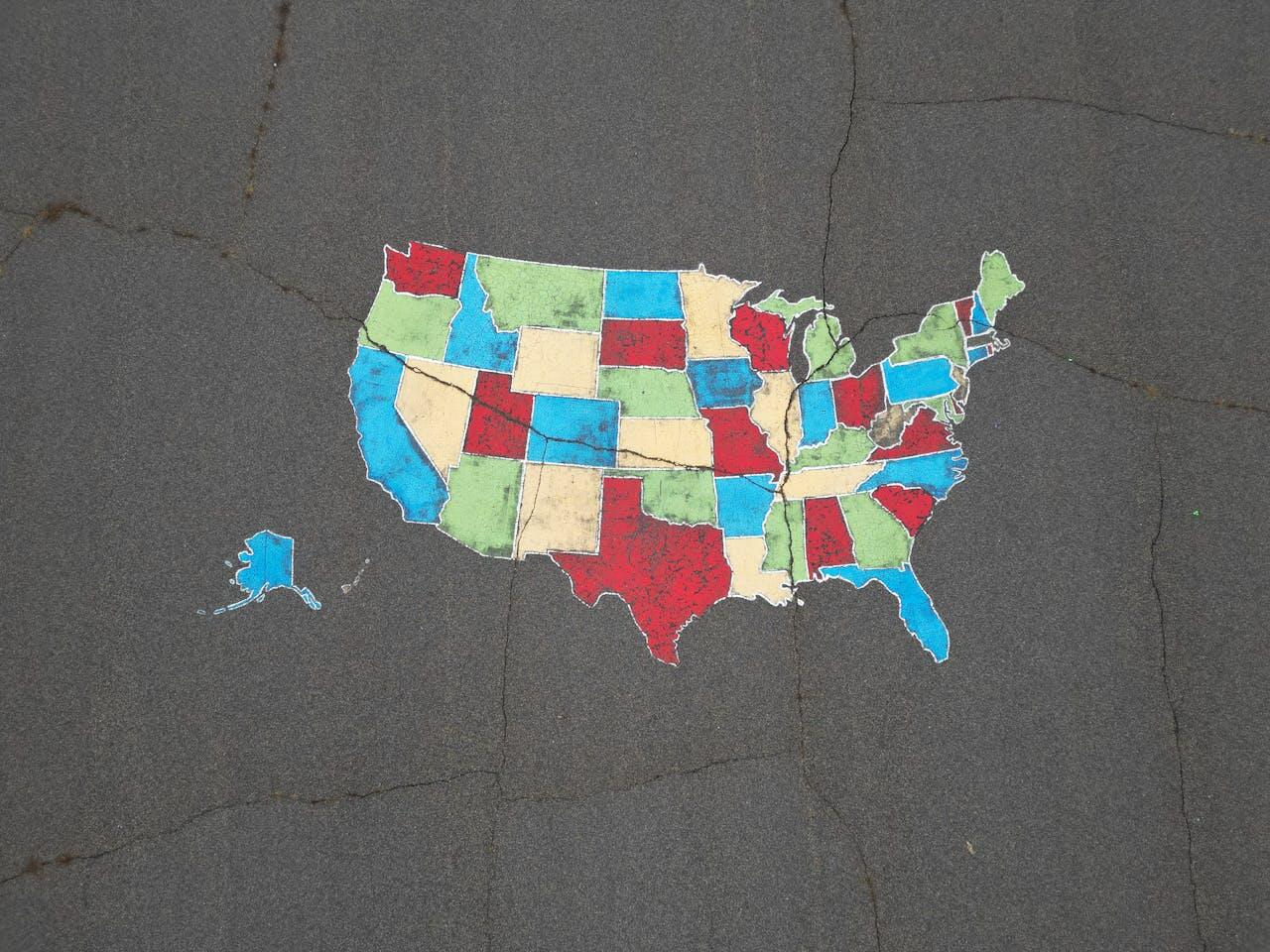
Becoming a Certified Public Accountant is a vital step for career growth within public accounting, but it’s not an easy one. You must pass all four sections of the CPA Exam and meet your state board of accountancy’s CPA requirements. But since each state defines its own licensing requirements, which is the easiest state to get your CPA license?
Find out what determines the answer to this question and decide which state is best for your process to becoming a CPA.
Summary
The easiest state to get a CPA license depends on an individual candidate's circumstances, including their educational background, professional experience goals, and residency status. While all states require passing the four-part CPA Exam, they have different requirements for education hours, residency, and ethics exams, making the best choice unique to each person.
State CPA education and experience requirements
All states require that you complete at minimum a bachelor’s degree from an accredited university, with substantial accounting coursework. And until 2025, all states also required that you complete 150 semester hours of total coursework—30 hours in addition to the 120-hour standard required for completion of a bachelor’s degree.
However, many states are now updating legislation to provide alternative pathways around the 150 hour requirement. Currently, the following states have either already enacted these new pathways or have passed such legislation that goes into effect within the next two years:
- Alaska
- Connecticut
- Delaware
- Georgia
- Hawaii
- Indiana
- Illinois
- Iowa
- Minnesota
- Montana
- New Mexico
- North Carolina
- Ohio
- Oregon
- Pennsylvania
- South Carolina
- Tennessee
- Utah
- Virginia
- California
- Nevada
- Arkansas
- Florida
- New York
- Massachusetts
- Texas
The states that are changing their education requirements to allow for only a bachelor’s degree are instead increasing the amount of professional experience in public accounting required for CPA licensure.
For example, if you are applying to become a CPA in Pennsylvania, you must complete one of the following requirements combinations after passing the CPA Exam:
- Bachelor’s degree + two years of experience
- Bachelor’s degree + 30 additional semester hours (150 hours total) + one year of experience
- Master’s or other post-graduate degree in accounting + one year of experience
Determining the easiest state to get a CPA license for you is therefore highly dependent upon your goals and plans in education and experience. If you aim to earn a master’s degree or you’re interested in taking additional accounting coursework beyond your degree, you’ll easily fit the education requirements in any state. However, if you’ve completed a bachelor’s degree and you don’t want to complete any more credit hours, it makes sense to consider applying through a state that offers one of the new, alternative pathways, and focus instead on building your professional experience to meet the requirements.
State CPA residency requirements
Some states require that you be a resident to apply for CPA licensure; in this sense, the state where you live is likely the easiest state for you to get your CPA license. However, not all states require residency, just like not all CPA candidates live in the US or plan to stay in the state where they’re currently living.
As you’re choosing a state for your CPA licensure, it’s therefore important to factor in which states do require residency and which do not.
States that require residency | States that do not require residency | |
| Kansas | Alabama1 | Montana |
| Louisiana | Alaska | Nevada |
| Minnesota | Arizona | New Hampshire |
| Mississippi | Arkansas | New Mexico |
| Nebraska | California | New Jersey |
| Oklahoma | Colorado | New York |
| Puerto Rico | Connecticut | North Carolina1 |
| Wyoming | Delaware | North Dakota |
| District of Columbia | Ohio | |
| Florida | Oregon | |
| Georgia | Pennsylvania | |
| Guam | Rhode Island | |
| Hawaii | South Carolina1 | |
| Idaho | South Dakota | |
| Illinois | Tennessee | |
| Iowa | Texas | |
| Indiana | U.S. Virgin Islands | |
| Kentucky | Utah | |
| Maine | Vermont | |
| Maryland | Virginia | |
| Massachusetts | Washington | |
| Michigan | West Virginia | |
| Missouri | Wisconsin | |
| 1You do not have to be a state resident, but must be a U.S. resident. | ||
If your state requires residency, then it’s most likely the easiest state to get your CPA license, because you already meet one of the requirements!
State CPA ethics requirements
Many states require that you not only pass the CPA Exam, but also some form of ethics exam or requirement. If you’ve already passed the CPA Exam, this additional exam will likely feel like a piece of cake—but don’t shrug it off. The ethics requirement is necessary in specific states and you won’t become a CPA if you fail to complete it.
In this sense, finding the easiest state to get a CPA license may factor in the presence of an ethics requirement or not.
States that require ethics exam | States that do not require ethics exam | |
| Alabama | New Mexico | Arkansas |
| Alaska | North Carolina2 | California |
| Arizona | North Dakota | Florida |
| Colorado | Oklahoma | Georgia |
| Connecticut | Oregon | Hawaii |
| Delaware | Rhode Island | Indiana |
| Idaho | South Carolina | Kentucky |
| Illinois | South Dakota | Louisiana |
| Iowa | Tennessee | Maine |
| Kansas | Texas | Massachusetts |
| Maryland | Utah | Michigan |
| Minnesota | Vermont | Mississippi |
| Missouri | Virginia | New Hampshire |
| Montana | Washington | New York |
| Nebraska | Wisconsin | Ohio |
| Nevada | Wyoming | Pennsylvania |
| New Jersey | West Virginia | |
| 2Requires completion of an approved North Carolina accountancy law course; source: https://nccpaboard.gov/cpa-license-applicants/ | ||
Which state is easiest to earn your CPA license?
The easiest state to get a CPA license depends on you and your specific circumstances and priorities—and the best state for you may be different than the best state for another candidate. You can weigh the different factors of each state’s eligibility process—from residency to education to ethics—but the most important thing to obtaining CPA licensure is to understand the requirements of the state through which you’re applying and work towards completing these successfully.
Also, know that all CPA jurisdictions require that you pass all four sections of the CPA Exam: three Core sections plus one Discipline section. So there’s no getting around it; no matter your state or jurisdiction, you have to prepare for and pass the CPA Exam.
Becker can help you be Exam Day ReadySM with the most trusted CPA Exam Review, with the latest tools and tech to help you fully understand the material and thrive on exam-day.
Try our CPA Exam Review course FREE for 14 days and be confident in passing the CPA Exam!









